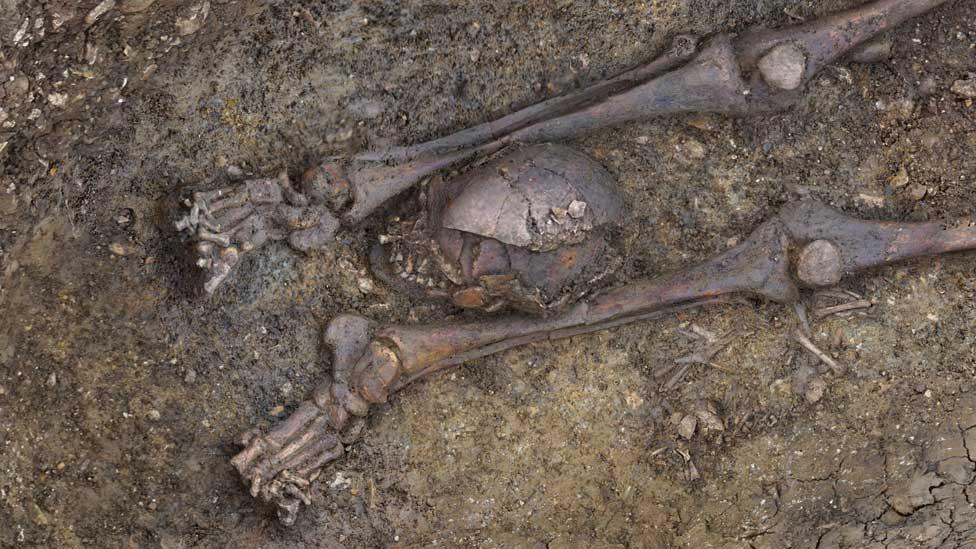HS2: Work begins on tree-covered tunnel in Chipping Warden
- Published
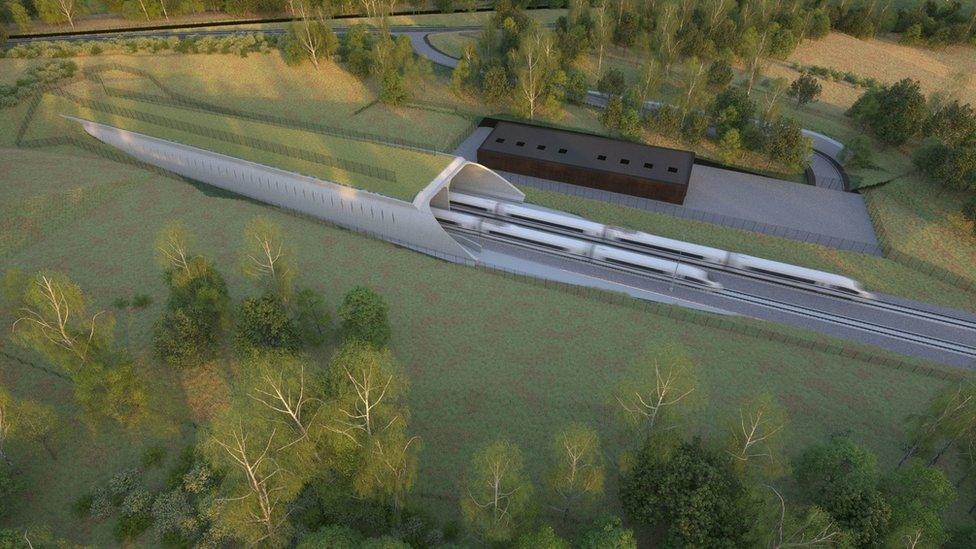
HS2 says the concrete tunnel will be covered by earth, trees, shrubs and hedgerows
Construction has started on a "green tunnel" designed to blend the HS2 railway into the landscape.
The one-and-a-half-mile-long structure is being built in Chipping Warden, Northamptonshire.
More than 5,000 concrete segments will be covered by earth, trees, shrubs and hedgerows in an attempt to match the countryside.
Campaigners opposed to the high-speed railway said the tunnel was another example of greenwashing by HS2.
HS2 Ltd project client Rohan Perin said the attempt to blend the tunnel with its surroundings was "a great example" of reducing disruption for those living nearby".
"It's fantastic to see the first arches in position," he said.
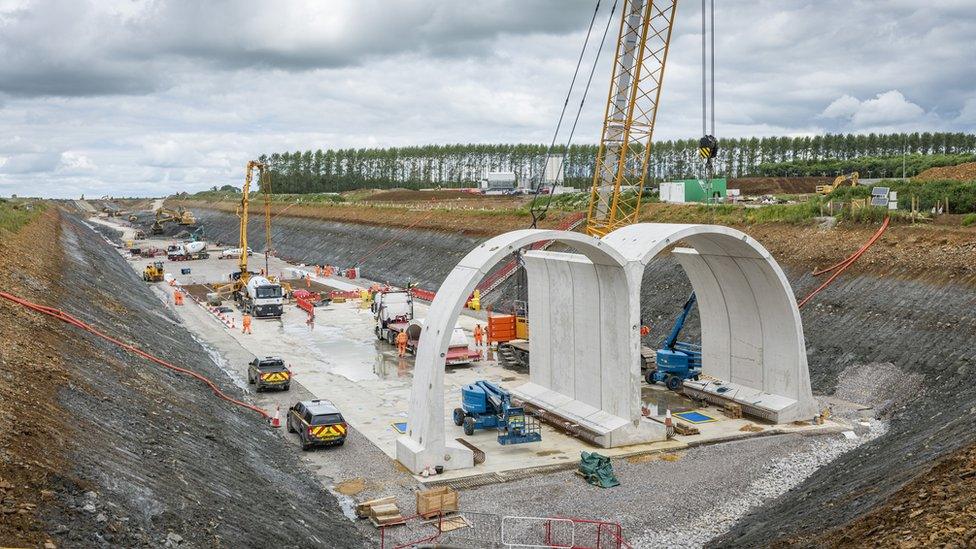
The tunnel is due to be finished in three years
The tunnel, which will be an m-shaped double arch to serve both northbound and southbound trains, is due to be finished in three years' time.
Each arch will be the height of two double-decker buses, HS2 said.
In total there will be five of the tunnels in phase one of the network between London and Birmingham.
The overall HS2 project has faced criticism about the impact it will have on the route of the line, with campaigners fighting against plans to build on woodland.
Penny Gaines, chairwoman of campaign group Stop HS2, said the "green tunnel" was "another example of greenwashing by those involved in the project".
"HS2 Ltd's own figures show that it still won't be carbon-neutral until more than 120 years of operation, which will be well into the 22nd Century - it also assumes that the electricity grid will be de-carbonised," she said.
Ms Gaines said the HS2 business case was "based around saving a few minutes on train journeys, but it's far more environmentally friendly not to travel at all, and we've all seen how much business can be done through video-conferencing and other technologies."
Mr Perin said: "Our trains will be powered by zero carbon electricity but it's also important to reduce the amount of carbon embedded in construction.
"The off-site manufacturing techniques being used will help cut the overall amount of carbon-intensive concrete and steel in the tunnel and make the whole process faster, more efficient and therefore less disruptive for the community."

Find BBC News: East of England on Facebook, external, Instagram, external and Twitter, external. If you have a story suggestion email eastofenglandnews@bbc.co.uk, external
Related topics
- Published31 May 2022
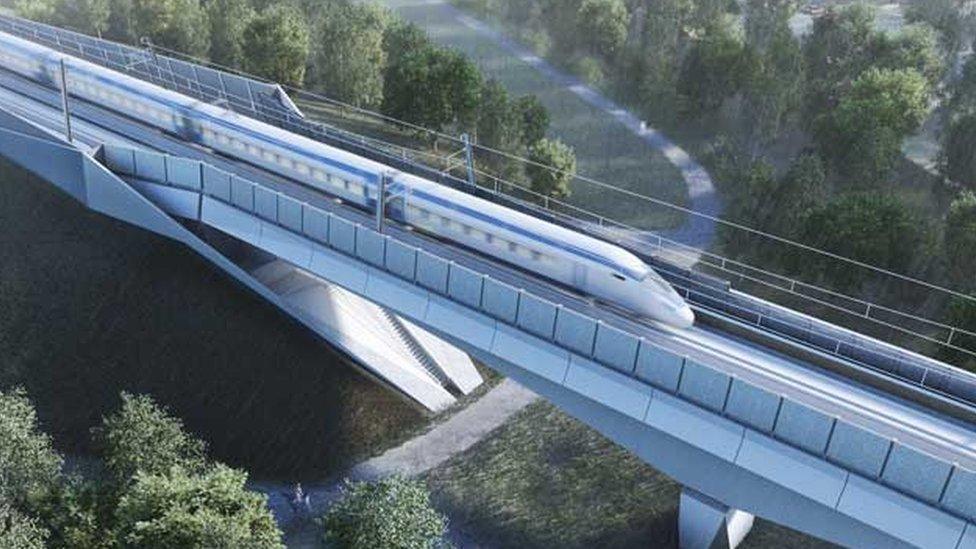
- Published9 February 2022
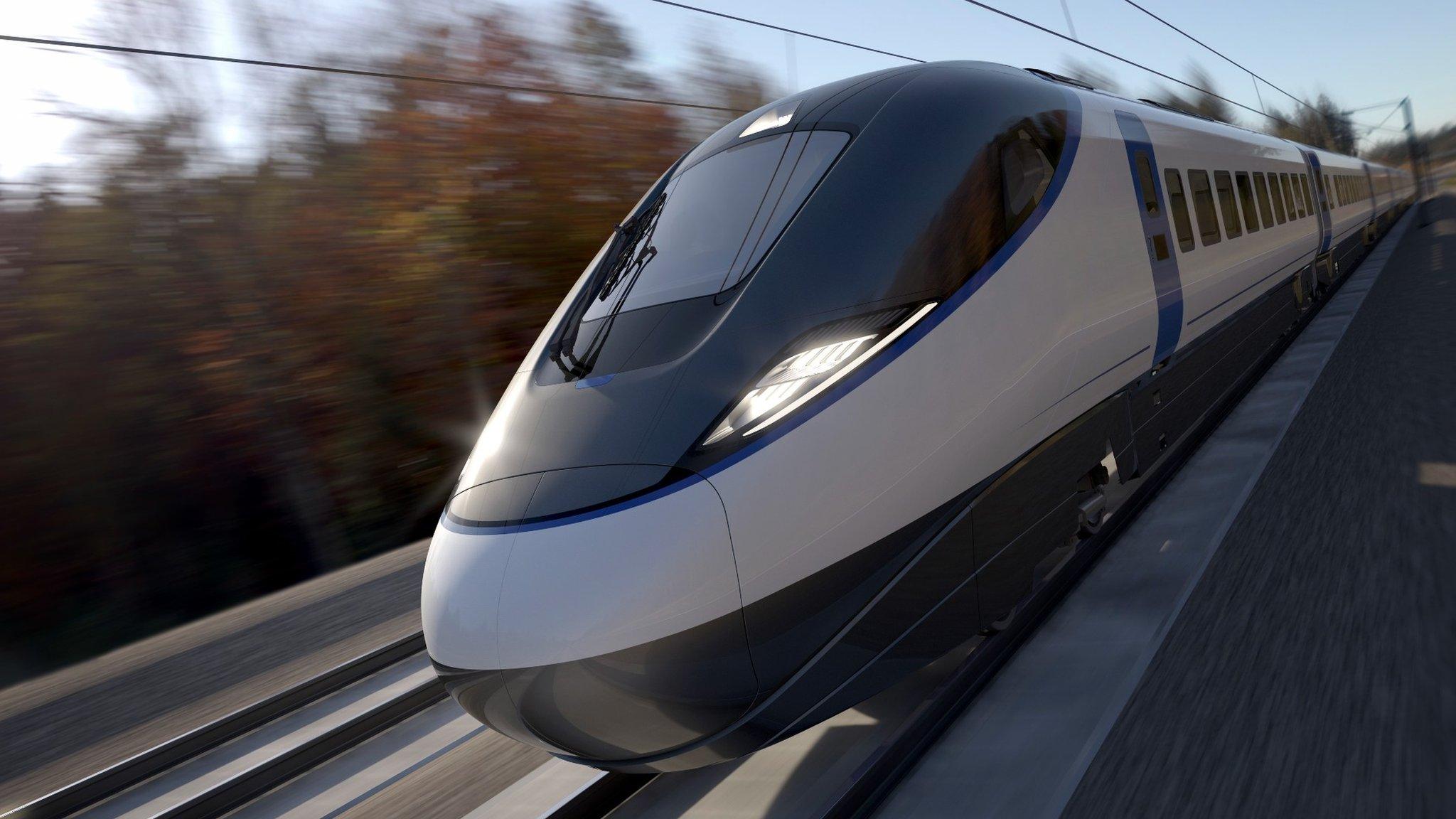
- Published5 February 2022
